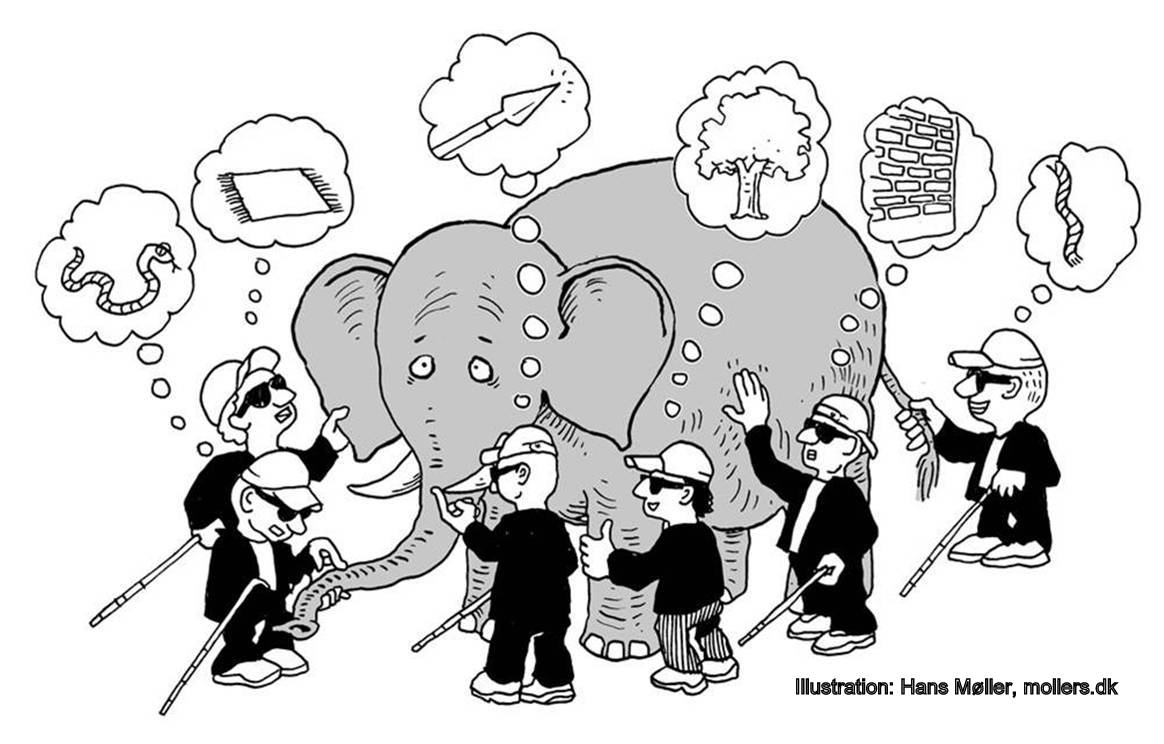Introduction
Just before falling down the rabbit-hole, some general concepts and definitions are introduced.
On pluralism
Is your reality objective? Many people believe their version is, as shown by the countless competing idealogies claiming to be The One True Way™. Being pluralistic does not mean you agree with all the different interpretations of reality, but that you accept that other people perceive reality differently. There is a difference between 'You are wrong' and 'I disagree'.
This text is written from a pluralistic perspective; even if reality is objective, no one can access it. Perhaps each person can see a part of it, in which case the combined perspective of many is closer than the divided few.

On bias
What is your version of things? The way things are is not the way things were; the way things will be is likely to be different again. How things work, what we collectively believe, societal values - the fabric of our reality - these things seem constant and fixed, but are not. So what is the your experience of the world and what bias has it left you?
Probably you were born and raised in a nation-state which has a common language, a national identity and geographical borders. Some kind of religious faith still plays an important part in the societal culture despite being formally separated from governance. The perspectives of sciencism and rationalism dominate those of philosophy and intuition in response to the rejection of previous religious ideologies; allopathy is the most respected medical perspective. This country was ruled by a king or queen or some other unelected body in the past and perhaps this ruling authority still exists in a figurative capacity. Now there is some kind of representative democracy where people are periodically elected to form a government who make decisions on behalf of the voters. These elections are done in a majoritarian fashion. The country has two main enforcement agencies - the police for internal matters and the army for external matters - who are accepted to use physical force to implement the decisions of the government. The economy is based on some kind of fiat currency using some kind of Keynesian logic. The division of labor is extensive leading to very fine specialization. Although better than in the past, males still have an elevated position over females and similarly do heterosexuals over other sexualities. Probably.
And if you're reading this, you have probably rebelled against some or all of the above. Perhaps all of these guesses were wrong and you had a completely different experience, that's fine. The purpose of this section is simply to provoke introspection into what is normal, what is real, for you.

On feelings
Why do you do anything? People have reasons for their actions based on some kind of logic built upon their perception of experience. Feelings and emotions are no less important to perception than sight, touch or hearing; the logical and the emotional are better not considered separate, but as parts of a continuum. Rationalistic and scientific perspectives have a tendency to value 'reason' and discredit 'feelings', but in doing so ignore the fundamental reason we do anything at all. If you have the option to do something that 'makes sense' or something that brings you happiness, which would you choose?

On force
force as physics concept F=W/d force typically a bad thing ('forced to do something') internal force as a concept of personal motivation external force differs in quality and quantity (from plantation slaves to familial disapproval)
On consent and consensus
These terms are in a lot of places and extensively in this book. 'Consent' is used to describe a state in which all members of a group are in agreement. Whilst 'consensus' is often used to describe a state in which all members of a group are in acceptance, it is used here to describe the state of most acceptance.
On formality
informal and formal working on top of protocol ...